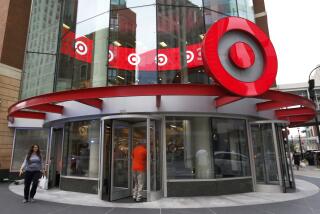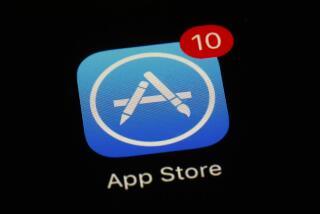MOG to debut free on-demand music service
America is the land of the free — music, that is.
MOG Inc., a digital music company based in Berkeley, on Thursday is launching a free version of its streaming service, which normally goes for $4.99 for computer access to $9.99 for cellphone and mobile listening.
The offering cranks up the competition among players in a small but growing market for subscription-based music services dominated by Spotify, Rhapsody, Rdio, Slacker, Napster and others.
Unlike online radio services such as Pandora, in which listeners don’t always get to hear the exact songs they want, subscription services let customers access libraries of millions of tunes they can play on demand.
Until recently, most of these services gave potential customers only a small taste of their offerings, trials anywhere from a few days to a few weeks, before asking users to pay. That changed in July when Spotify, a Swedish company with 10 million users throughout Europe, debuted in the U.S. with a free but limited service supported by advertising.
MOG is the first U.S. company to counter with its own free version. Dubbed FreePlay, it gives users who access the service from computer browsers a “tank” of free music. Users who do things to help the company reach new customers, such as create playlists or recruit friends, will be rewarded with more free spins.
Sometime next year, they can also interact with sponsors or advertisers to fill up their quota of free music by, for example, watching a movie trailer or subscribing to a mail newsletter. For now, however, MOG is keeping the ads off the free service to attract more users.
“There’s no cap, so you can theoretically get a lifetime of free music,” said David Hyman, MOG’s chief executive.
So what’s the catch?
MOG, like Spotify, hopes that the free version will tempt users to spring for the paid service, which lets them listen to the ad-free service on mobile devices, cars and home entertainment systems.
“This is a way for us to make sure the world can get a taste of our service,” Hyman said.
Few people have tried or are even aware of these services. Analysts estimate that fewer than 5 million people in the U.S. pay for a subscription to “all-you-can-eat” music services.
Having a free component is essential if music services are to catch on with mainstream users, said Aram Sinnreich, a professor of media studies at Rutgers University.
“The reality is that if consumers can’t get free music through legal, commercial services, they know exactly how to get it illegally,” Sinnreich said. “The only way any service can entice them to use a licensed service is to have a free component that also introduces them to a much better paid service.”
But most companies have shied away from offering free on-demand service because the cost of paying music royalties is so prohibitive.
MOG’s approach is novel in that it attempts to get something tangible in return.
“We’ve felt that a free component was critical,” Hyman said. “But we wanted to do it in a way that makes economic sense.”
The company is not disclosing how much music it is giving away, believing that deliberately keeping things vague would encourage users to explore the service more to see what actions trigger additional free music. It also gives the company flexibility to adapt to things that work better in attracting new subscribers and to de-emphasize actions that don’t do much to spread the word.
In that sense, MOG is taking a page out of the playbook of social games created by companies such as Zynga Inc. and Electronic Arts Inc.’s Playfish studio. Developers of these games are constantly tweaking their titles based on the billions of clicks from players each day.
“At the end of the day, it’s still about having a great product,” Hyman said. “If it’s not awesome, then you will never get people to pay.”






